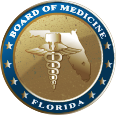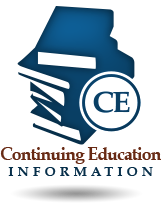Reduced Fees: The Board initiated the rulemaking process to impose a one-time renewal fee reduction for physicians for the 2013-2015 and 2014-2016 licensing biennia. The proposed rule change would reduce the fees from $360 to $250 only for these two license renewal cycles.
Improved Licensing: The Board voted to change its application for initial licensure as a medical doctor. The new application is more user-friendly and will remove duplicative steps for applicants. The changes to the application have yet to be adopted through the rule-making process. However, once this new application is approved and implemented, the speed in which an applicant can be licensed is expected to dramatically improve.
Telemedicine Standards: Recognizing that the Board’s rules relating to the standards of practice did not adequately address the increasing use of telemedicine in various practice settings, the Board of Medicine asked the Board of Osteopathic Medicine to work in a joint committee to address this issue. As a result of these meetings, Rule 64B8-9.0141, F.A.C., Standards for Telemedicine Practice, was adopted on March 12, 2014. This rule sets out the minimum practice standards for the use of telemedicine in Florida. The Board recently adopted an emergency amendment to this rule to clarify that the prohibition on prescribing controlled substances via telemedicine does not apply to the ordering of controlled substances for hospitalized patients.
Office Surgery Update: The Board created a joint committee with the Board of Osteopathic Medicine to review and update Rule 64B8-9.009, F.A.C., Standard of Care for Office Surgery. The joint committee held several meetings to discuss necessary changes to the rule as a result of the evolution of office surgery practice over the years. In making the changes, the Board heard testimony from the public, including the Department of Health’s contracted office surgery inspectors and representatives from various medical societies. The joint committee has not yet finalized the language, but will meet again on June 5, 2014.
Public Outreach: In January 2013, the Board went live with a new website. This improved website enables the Board to better communicate with licensees and members of the public. By signing up on the website, any interested person can become a part of the Board’s emails designed to update physicians, medical students and the general public about board meetings, statutory changes, rule changes and public health issues.
Throughout the year, Board members and staff have visited medical schools and medical societies or associations to provide legal updates and education concerning the role of the Board of Medicine in regulating the practice of medicine.
The Board also assisted the Army Medical Corps at the request of Sergeant First Class Josef Barmoha. The Board mailed out two brochures to medical schools, medical societies and the Board’s Interested Parties List that describes the opportunities available to physicians and medical students in the Army Medical Corps.
Chairman’s Awards: The Chairman of the Board continues to present the Chairman’s Recognition Award to medical students who exemplify the professionalism, moral character, compassion and intellect essential to future leaders of our medical profession. Awards are also given to licensed Florida physicians for outstanding contributions to the practice of medicine and patients of the State of Florida.
Federation of State Medical Boards: In April 2014, Board Chair, Nabil El Sanadi, M.D. attended the annual meeting of the Federation of State Medical Boards (FSMB). The FSMB continues to work on language for an Interstate Compact designed to allow physicians to practice in member states without going through a full licensure process for each state. The FSMB has not provided its members with the final language of the compact, but was able to share the concepts for discussion purposes.
Enforcement: In Fiscal Year 2012-2013, the Florida Department of Health received 6,759 complaints and reports of statutorily required information regarding medical doctors. Of those complaints or reports, 1,348 were determined to be legally sufficient. Following a review of the Board’s probable cause panel, 812 cases were dismissed for lack of probable cause and 245 administrative complaints were filed. The Board of Medicine resolved 217 cases by issuing a final order resulting in discipline of the license. Of those cases, 14 resulted in the revocation of a license and 56 cases were resolved by the voluntary surrender of the license.





